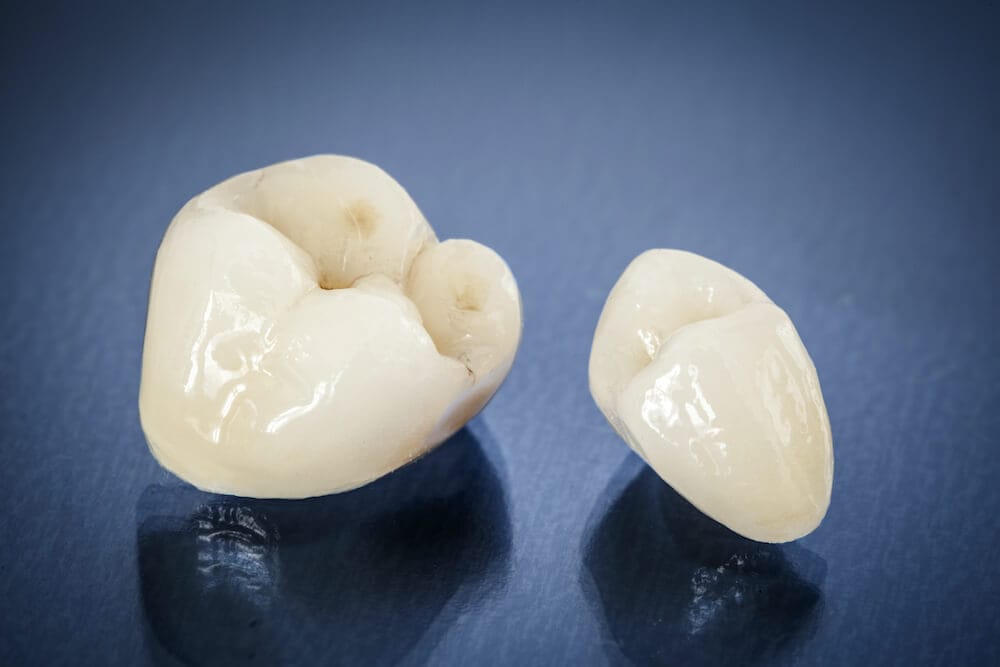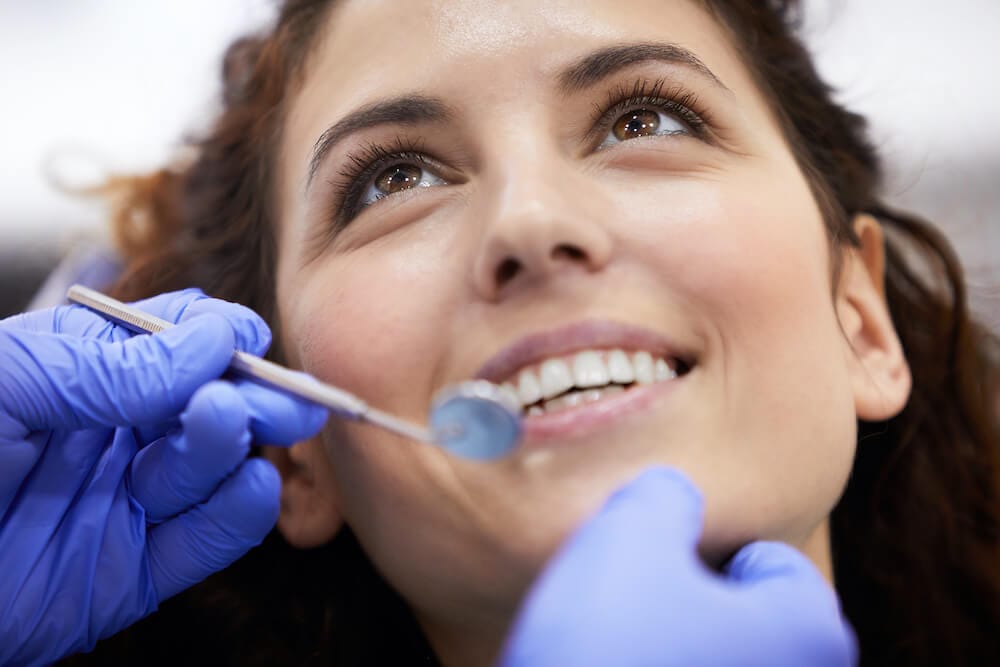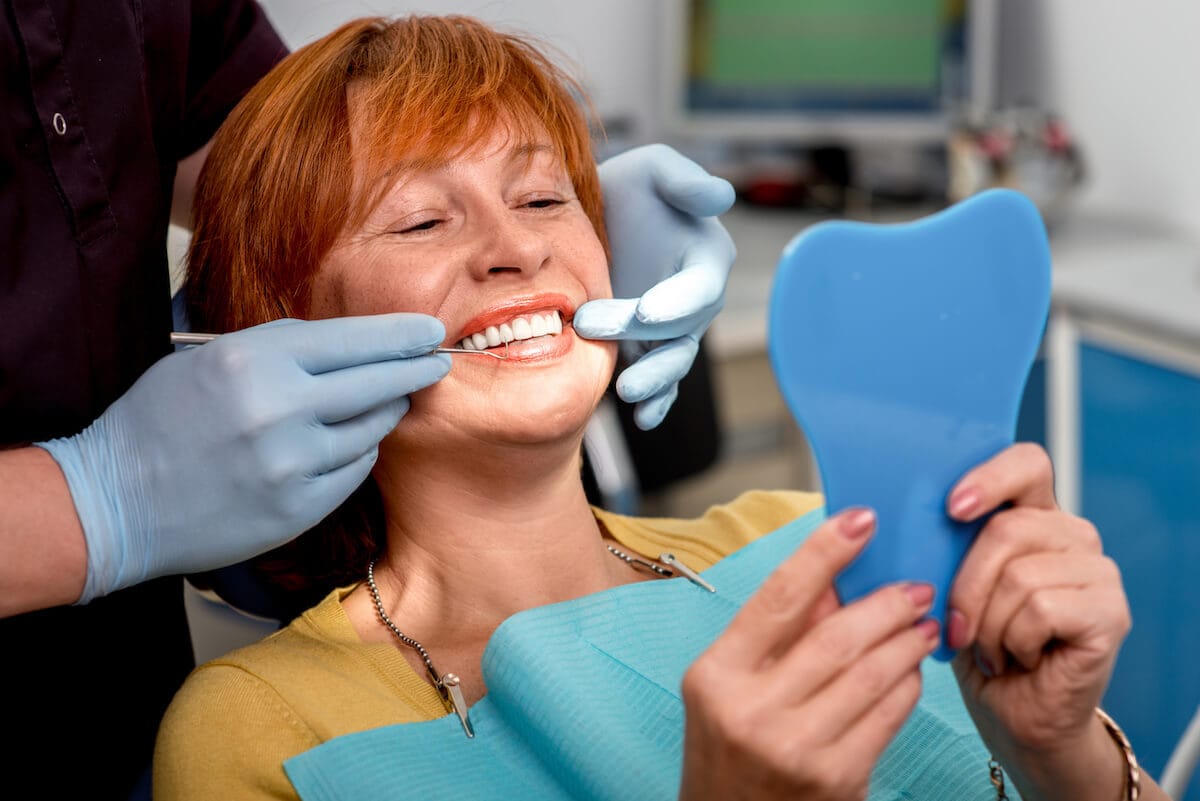One of the most common procedures that dentists do other than filling cavities is prepping and placing dental crowns. Crowns are important coverings for teeth that not only restore cosmetic beauty to a problematic tooth but also protect the tooth from further damage. If you have never had a crown placed, you may be nervous about the procedure or may be wondering what you can expect. Here you can find answers to your most commonly asked questions about dental crowns.

What Are Dental Crowns?
A dental crown, or dental cap, is a fixed prosthetic covering that goes all the way around a damaged tooth. Unlike veneers, onlays or inlays that only cover a portion of the tooth, a crown fully encases the tooth and is cemented in place for permanent protection. The crown restores the tooth’s function and appearance.
Dental crowns are designed to look just like the tooth they are covering. Therefore, your dentist will match the color of your crown to your other teeth and will create the correct shape and size to fit perfectly in your mouth. Permanent crowns can be made from a variety of materials. Porcelain crowns are among the most popular because their color can be matched precisely to your natural teeth. However, a metal, gold, porcelain-fused-to-metal, ceramic or resin crown may be chosen instead based on your dentist’s recommendations.

Who Needs Dental Crowns?
Dental crowns are used in many situations when a tooth needs to be protected. For example, they may be used to cover teeth that have had a great deal of decay and the cavity is too large for a filling. They could also be used to protect teeth that have been broken, cracked, worn down, or otherwise weakened. In addition, your dentist may recommend crowns if you have had root canal treatment in order to protect the restored tooth. In some cases, a crown can even cover a severely discolored or badly shaped tooth to create a more cosmetically pleasing look.
Improve Your Smile Today with Cosmetic Dentistry!
What Happens During a Dental Crown Procedure?
The traditional dental crown procedure usually takes at least two visits to your dentist. However, in the case of CEREC same-day crowns with Dr. Tuan Pham, you can be fitted for the crown and get it permanently placed on the same day.
The first step is to prepare the tooth fully. Your dentist prepares the tooth by removing its outer portion so the crown will fit. All decay is removed and if additional tooth structure is needed to support the crown, your dentist may build up the core of the tooth. Once the area is cleaned and built up, your dentist will shape the tooth to make enough space for the crown. Next, he will take an impression of the tooth or digitally scan the area to create the right size and shape of crown for your mouth. Unless your dentist is using CEREC technology, the impression or scan will be sent to an out-of-office laboratory where a crown will be manufactured. You will be given a temporary crown to wear for a week or two while you wait. While you have a temporary crown, the tooth may be sensitive to hot and cold. Avoid chewing gum and eating sticky or hard foods during this time. When the new crown is ready, your dentist places it in your mouth and makes the necessary adjustments and take an x-ray to make sure the the crown is sealed at the margins. When you and your dentist are happy with the looks and feels, the crown is permanently cemented into place.
How Long Do Dental Crowns Last?
Although crowns should definitely be seen as permanent solutions to certain oral problems, you should realize that your current crown may not last forever. The average lifespan for a well-maintained dental crown is typically around 10-15 years. However, those made from solid materials, such as metal, may last longer than this with proper care. Avoid clenching or grinding your teeth. Avoid chewing hard foods, ice, or other hard objects, especially if you have ceramic, resin and porcelain crowns. This type of trauma to your crown can cause it to chip or crack. If you have a tendency to clench or grind, it is recommended that you wear a custom-made night guard while sleeping. This will protect your crowns as well as your natural teeth.
By taking great care of your crown, you may be able to help it last even longer than the average lifespan of the crown. In fact, those who practice good hygiene, including brushing at least twice a day, flossing daily and seeing their dentists for cleanings and checkups twice each year, may be able to make their crowns last 20 years or more.




